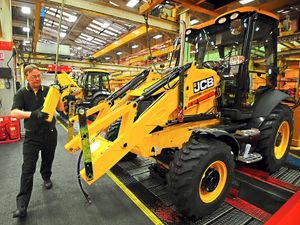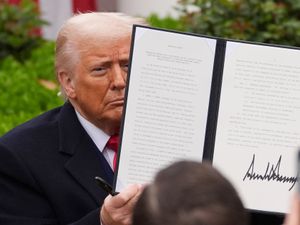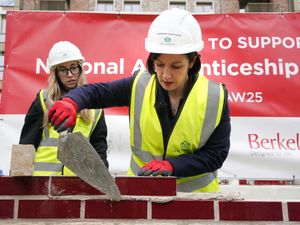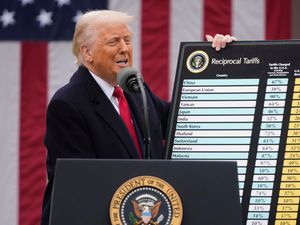Caparo in crisis: Bosses face questions over supercar's role in demise of steel giant
Caparo bosses are set to face hard questions about how the £370m-a-year company has come to the point of collapse, putting up to 1,700 jobs at risk – most of them in the Black Country.
And some are questioning whether Caparo's largely unsuccessful venture into building a road-legal supercar may have played a role in its current woes.
A large team from accountants PwC – PricewaterhouseCoopers – is now at work on the administration of Caparo Industries, assessing which parts can be saved and sold.
But some businesses within the group almost certainly face closure, with the loss of potentially hundreds of local jobs.
While the current steel crisis – which yesterday claimed 1,200 more jobs with Tata announcing redundancies in Scunthorpe and Scotland – has been blamed by many, it may not be the only factor in the collapse of Caparo Industries.
Matt Hammond, the lead administrator from PwC, said: "The impact of steel prices and exchange rates has had an impact on some parts of the Caparo Industries group. However there are businesses in the group that are not directly affected by steel prices, and likewise many where there is both strong customer demand and critical supplier support."
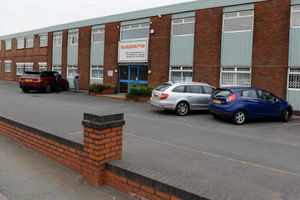
Those looking for other factors in the collapse have pointed to the heavy expense of developing the Caparo T1 two-seater sports car. Initially launched in 2007, the plan was to make up to 25 a year with a price tag of more than £200,000 apiece, but the project ran into the recession and it is thought no more than 30 were ever made.
The sports car business went quiet until an apparent re-launch last year of the Caparo T1 Evolution 'hypercar', this time with a price per car of 1.1 million euros, or £800,000.
But, part from a few public appearances such as its appearance in police livery as part of a campaign against dangerous driving at the Autocar International show at the NEC in January, nothing more has been heard.
Development of the car, with its carbon/aluminium honeycomb monocoque and use of advanced carbon technology composites, will have been expensive but it does not appear to have produced the sales necessary to cover those costs.
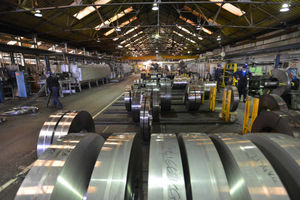
It will be down to the PwC team, currently working their way through the accounts of Caparo Industries' complex structure, to find out what impact this ambitious project may have had on the wider business.
PwC's Matt Hammond said the companies involved in the production of the T1, which was used as a demonstration of Caparo's technological capabilities, would be investigated by his team, along with every other part of the group as part of the administration process, "so we can get an understanding of what has happened over a period of time."
It would be key to assessing the future of the individual businesses, he said.
Because of the complexity of the Caparo Industries structure of 16 companies, PwC has had to draft in a team of around 50 to handle the workload.
Even then, it is likely to take the rest of this month before the administrators can go to customers and suppliers with their assessment of the state of the business.
In the meantime, said Mr Hammond: "Our priority is the workforce. Of the 1,711 across the business the vast majority work within a 10-mile radius of West Bromwich. This is the core of the business. They are our main concern, reassuring them as far as we can that their jobs will continue for the time being."
Yesterday staff , described as 'shocked' by Mr Hammond, were being briefed at Caparo's 20 sites across the Black Country, including operations in Willenhall, West Bromwich, Wednesbury, Cradley Heath and Bilston. They have been told no jobs are being cut immediately and work is to continue as normal.
It would be weeks, probably November, before the administrators have a clear picture of the state of the business and might be able to start considering offers for the various component companies, but Mr Hammond said that in the first 24 hours PwC had received around expressions of interest from around 40 different parties.
Meanwhile fears are growing that the crisis that has hit Caparo could claim other victims across the Black Country
Economist Paul Forrest said: If we lose steel production a lot of companies further up the broken supply chain are going to start disappearing."
Mr Forrest, head of research at the West Midlands Economic Forum in West Bromwich, said around 18 per cent of manufacturing companies in the Black Country were involved in basic metal fabrication work and very dependent on the supply of high quality steel.
"If we don't have high quality steel then how can companies produce components? That is going to have an adverse effect, particularly in the Black Country and across the wider West Midlands."
Mr Forrest said there was a need for Midlands MPs to mimic those in Scotland in urging Government action to protect the steel industry.
He added: "The problems of Caparo and the steel industry are down to a whole range of factors but it shows the fragility of the recovery. And we still don't have a national industrial policy to support manufacturing."

